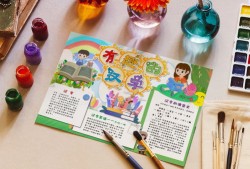有文学气息的网名
- 经验
- 2024-05-20
- 988
Exploring the Literary Essence: A Dive into Enchanting English Lexicon
In the vast ocean of the English language, there exists a treasure trove of words that carry with them the fragrance of literature, weaving intricate tapestries of imagery and emotion. These words, imbued with a certain charm and elegance, have the power to evoke profound sentiments and paint vivid landscapes in the minds of those who encounter them. Let us embark on a journey through this labyrinth of language, exploring the nuances and beauty of words that possess a distinct literary aura.
1. Serendipity
Originating from the Persian fairy tale "The Three Princes of Serendip," this word encapsulates the concept of making delightful discoveries by chance. It embodies the essence of unexpected joy and happy accidents, often encountered in the realms of storytelling and poetic narrative. To writers, serendipity is akin to stumbling upon a hidden gem amidst the vast expanse of imagination.
2. Mellifluous
As sweet as the nectar of the gods, "mellifluous" dances off the tongue with graceful fluidity, describing sounds that are smooth, melodious, and pleasing to the ear. This word finds its home in lyrical prose and poetic verse, where it adds a touch of musicality to descriptions of nature, love, and beauty.
3. Ethereal
Like a wisp of cloud drifting across a moonlit sky, "ethereal" conjures images of otherworldly beauty and transcendental grace. It is often used to describe things of delicate, celestial nature, such as the soft glow of a candlelight, the fleeting beauty of a sunrise, or the ephemeral essence of a dream.
4. Quixotic
Inspired by the chivalrous adventures of Don Quixote, this word embodies the spirit of idealism and romanticism in the face of impracticality and adversity. To be quixotic is to pursue lofty dreams and noble quests with unwavering passion and courage, regardless of the odds stacked against them. It speaks to the resilience of the human spirit and the power of imagination to defy reality.
5. Luminous
Radiant with an inner glow, "luminous" illuminates the darkness with its brilliance and clarity. It describes things that emit light or possess a radiant quality, both literal and metaphorical. In literature, it is often used to evoke images of enlightenment, inspiration, and the transcendent beauty that lies beyond the mundane.
6. Sonder
Coined by the Dictionary of Obscure Sorrows, "sonder" encapsulates the realization that every person has a rich and complex inner world, populated by dreams, fears, and untold stories. It is the profound sense of connection and empathy that arises from recognizing the shared humanity in others, reminding us that each individual is a protagonist in their own narrative.
7. Ephemeral
Like a delicate flower that blooms for a fleeting moment before wilting away, "ephemeral" captures the transient nature of existence and the passage of time. It speaks to the fragility of life and the impermanence of all things, urging us to cherish each moment and embrace the beauty of fleeting experiences.
8. Evanescent
Drifting like a wisp of smoke on a gentle breeze, "evanescent" describes things that are transient, vanishing swiftly from sight like a passing dream. It carries an air of mystery and mystique, hinting at the elusive nature of truth and the ephemeral quality of memory.
9. Penumbra
Dwelling in the shadowy realm between light and darkness, "penumbra" refers to the partial illumination that surrounds an object, casting it in a soft, diffused glow. In literature, it serves as a metaphor for ambiguity and uncertainty, exploring the blurred boundaries between reality and illusion, knowledge and ignorance.

10. Vellichor
A word coined by John Koenig, "vellichor" describes the comforting nostalgia evoked by the scent of old books. It captures the essence of literary history and the timeless allure of storytelling, inviting us to embark on a journey through the dusty corridors of the past, where every page holds a fragment of the human experience.
In the realm of literature, words are more than mere tools of communication; they are vessels of emotion, carriers of meaning, and portals to worlds unseen. With their evocative power and timeless charm, these words enrich the tapestry of human expression, inviting readers to embark on a journey of imagination and discovery. As we navigate the labyrinth of language, may we continue to revel in the beauty of words that resonate with the echoes of literary tradition and the boundless creativity of the human spirit.
Keep Exploring, Keep Dreaming, Keep Writing.
[Note: This HTML document includes formatted text and CSS for styling.]
上一篇
幼儿文学和儿童文学一样吗
下一篇
广东二本考研容易的学校









